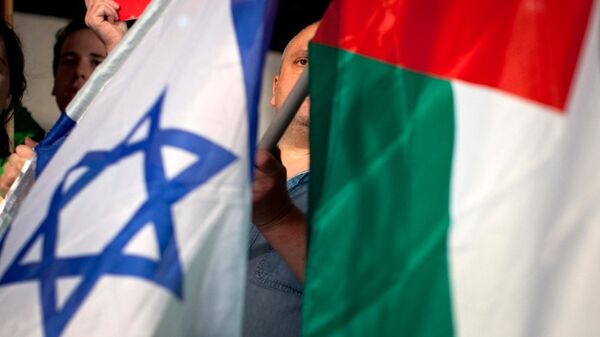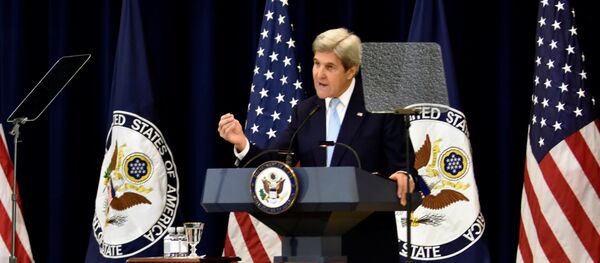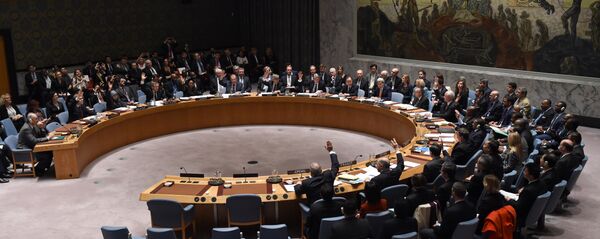It constitutes a sharp break with tradition when it comes to UN resolutions censuring Washington's closet Middle East ally. Over decades the US has been the diplomatic shield upon which Israel has depended when it comes to its obdurate refusal to give way on Palestinian human, civil, and national rights.
Not on this occasion.
Israel's Prime Minister Benjamin Netanyahu has predictably been pitched into paroxysms of rage and indignation not only at the UN vote but at the Obama administration's role in ensuring its passage. Indeed the Israeli leader has asserted that: "From the information that we have, we have no doubt that the Obama administration initiated it, stood behind it, coordinated on the wording and demanded that it be passed."
He went on to opine:
"Friends don't take friends to the Security Council."
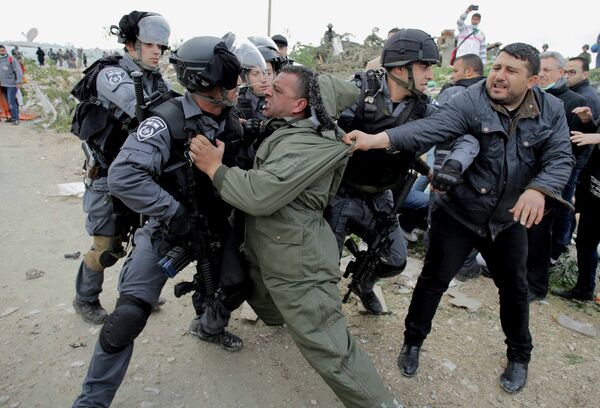
In this regard, one cannot help but speculate that Prime Minister Netanyahu should have borne this in mind before attempting to undermine the Obama administration's support for the p5+1 (shorthand for China, France, Russia, UK, US plus Germany) nuclear deal with Iran in 2015.
Benjamin Netanyahu is by now well known for splenetically defending his government's actions. This time round he has outdone himself, arranging for the ambassadors of ten UN Security Council member states to be summoned to the Israeli Foreign Ministry to receive a dressing down for their part in passing the resolution, while summoning the US ambassador to Israel, Daniel Shapiro, for a personal face to face.
My response to US Secretary of State John Kerry's speech: https://t.co/0Sk6rtY9OL
— Benjamin Netanyahu (@netanyahu) December 28, 2016
The Israeli leader has also withdrawn Israeli ambassadors from New Zealand and Senegal, two of the countries, along with Malaysia and Venezuela, which proposed the UN resolution. Not satisfied with that, he has also announced the suspension of working ties with the embassies of 12 of the 14 UN Security Council member states involved.
What should not be forgotten amid all this diplomatic and political fallout is the matter of justice for the long-suffering Palestinians.
They have been forced to endure the depredations of a decades-long military occupation of the West Bank, involving hundreds of military checkpoints, the theft of land and resources, and the denial of access to a network of settler-only roads.
Meanwhile, the Gaza Strip remains the world's largest open prison, where around 1.7 million men, women, and children are penned inside a land space of 40x10km, bordered by the Mediterranean Sea and two land crossings, one controlled by the Israelis the other by the Egyptians at Rafah.
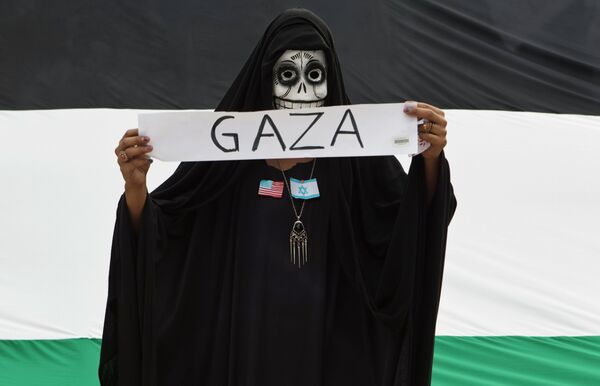
According to the UK-based international charity War on Want:
"The catastrophe facing the Palestinian people is a defining global justice issue of our time. It is not an intractable conflict between two equal sides. It is an occupation by a powerful military state, armed and supported by the West, against an impoverished, stateless and displaced people."
On the specific issue of Israeli settlements they are, despite Netanyahu's protestations, illegal under the terms of the 1949 Fourth Geneva Convention prohibiting the establishment of settlements by any country in territory it occupies.
“destruction & appropriation of property, not justified by mil necessity are grave breaches." Art 50 of 1949 Geneva Convention I, (3/3)
— Lyle Morris (@LyleJMorris) December 16, 2016
Beginning from after the 1967 Six Day War, during which Israel took control of the West Bank from Jordan, the Gaza Strip from Egypt, and the Golan Heights from Syria, Israeli Jewish-only settlements have expanded year on year to the point where they now number in excess of 200.
Israeli troops celebrate their victory in the Six-Day War, June 1967. [720x480] https://t.co/TUWxbfQrXl history, h… pic.twitter.com/pNF7Q6dsJv
— Geekier (@GeekierUK) December 28, 2016
Some, such as Gush Etzion, Betar Illit, and Modiin Illit, are the size of small towns. The total population across all Israeli settlements is now in the region of 600,000, covering roughly 4 percent of the occupied West Bank, including East Jerusalem.
Such is the political influence wielded by the settlers, every Israeli prime minister since 1967 has pledged support for them, happy to provide the vast subsidies without they would struggle to survive, much less expand as they have. Benjamin Netanyahu is an especially firm supporter of settlements expansion, while in the cabinet of his right-wing coalition government are those who even advocate the annexation of the entire West Bank.
While this UN resolution — citing Israeli settlements as "a flagrant violation under international law and a major obstacle to the achievement of the two-State solution and a just, lasting and comprehensive peace" — is symbolically important, enforcing it is another matter. It reminds us that those who are forced to abide by international law and those who are not throws up the issue of might is right.
In a world underpinned by justice there would be no opt-outs when it comes to updolding international law, with no country, regardless of size, power, or history, exempt.
But we do not yet live in such a world, and despite the Obama administration's role in allowing this particular UN slap down to pass, Washington is not about to relinquish its economic and military support for its closest Middle East ally any time soon. It is here, therefore, is where the international campaign of boycott, divestment, and sanctions (BDS) comes in.
If @JohnKerry wants #Israel to quit stealing Palestinian land & building illegal settlements, U.S. should stop sending billions in weapons.
— Palestinian Rights (@US_Campaign) December 28, 2016
Beginning in 2005, in response to a call from Palestinian civil society, the BDS campaign, which draws inspiration from the international boycott campaign that helped end apartheid in South Africa, has grown over the years to the point where the Netanyahu government has been forced to view it as a serious threat.
As such it is a campaign that has come under serious attack in recent years, smeared with the calumny of anti-Semitism in an attempt to derail and blunt it.
Netanyahu thinks Trump will save apartheid Israel. He's mistaken. Trump's backing will accelerate Israel's descent into pariah status. #bds
— Ali Abunimah (@AliAbunimah) December 29, 2016
If it does one thing, the passing of this Security Council resolution unquestionably reasserts the moral force of an international campaign in support of a people suffering under the iron heel of apartheid and military occupation without end.
Finally, returning to Obama's role in this affair, his Israeli counterpart, Prime Minister Netanyahu, has just found out that hell hath no fury like a US president scorned.
The views expressed in this article are solely those of the author and do not necessarily reflect the official position of Sputnik.
